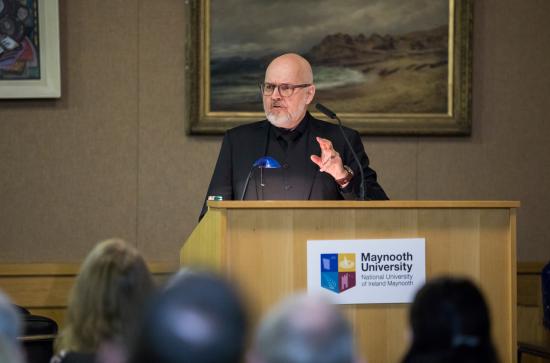
The role of universities is not, and should not be, to churn out productive workers. Instead, higher education should be a space in which students are given the time and free space to examine, question and explore the world.
Irish and European educational policies’ increasing focus on solely preparing students for the workforce, therefore, risks being detrimental to the development of their skills as critical and free-thinking citizens. This is the topic that Professor Carl Anders Säfström will discuss in the first of Maynooth University’s Inaugural Professorial Lecture Series 2018 on Thursday, 12 April.
Prof Säfström joined Maynooth University from the School of Culture and Education at Södertörn University in Stockholm, Sweden. His work examines the role education plays in issues of justice, equality and democracy.
In his presentation, ‘Education as the Making of a World in Common Across Difference,’ Prof Säfström discusses the role of education in democracy, and warns against only treating higher education as a way to build up a nation’s workforce. He refers to his time on a panel at the European Educational Research Association in 2017, which discussed the changing demands being put on universities as a consequence of the Bologna Process – a series of ministerial meetings and agreements between European countries aimed at standardising third level institutions and qualifications.
Prof Säfström says: “The university is a place and space that is best understood as being traditionally free from the obstacles of ordinary life, and has another function beyond the production of work and things. It is a place where the free time to think and question society and ourselves is possible in a world that often seems to be losing the space to do so.”
“I think that if universities put into practice all those micromanaging systems put forward by the Bologna Process, they would be at high risk of losing that which makes them unique and important to democratic life.”
“In Ireland, attempts to standardise third level education and cater it towards the labour needs of industry have often come at the expense of the humanities, as STEM subjects are given precedence. While science and technology are important, this puts Ireland’s culture of literature and arts at risk – the same literary tradition that has played such an important role in the formation of the Irish society.”
“It should be noted too that the need for well-informed, critical and free-thinking citizens is as great now as it has ever been in maintaining European democracy. In an unstable world, we need thoughtful scholars as much as we need productive workers.”
Prof Säfström noted that Maynooth University’s introduction of its new undergraduate curriculum in 2015, which promotes critical thinking and allows for greater choice across disciplines was “very welcome in both an international and domestic context.”
